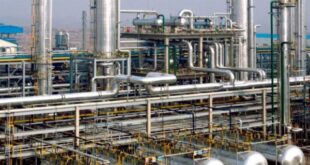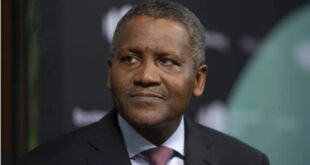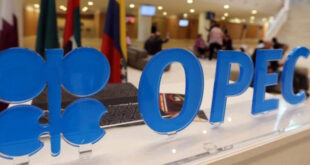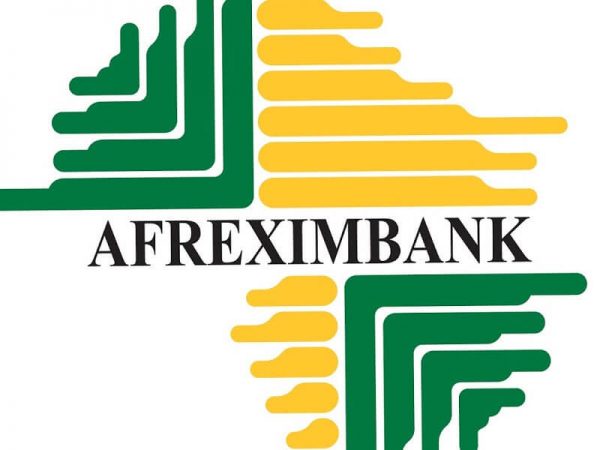
With the recent announcement of reduction in capital expenditure budgets by International Oil Companies amid lower oil prices, the fate of several oil projects in the Nigerian oil and gas industry now hang in the balance.
Industry analysts have said that the plunge in oil prices, which drove down oil companies’ profits last year, would lead to cancellation of a number of projects while some assets would be sold off.
Just on Tuesday, SacOil, South Africa-based independent African oil and gas company said it was considering the cancellation of an agreement to participate in an appraisal asset in Nigeria.
Last week, global oil firms, Shell and Chevron, which have significant assets in Nigeria, announced cuts in their capital spending. But they did not state whether their investment in Nigeria would be affected.

Shell said it was deferring spending in many areas, and this should result in reduction of potential capital investment for 2015-17 of over $15bn.
“Shell’s rich portfolio funnel and today’s lower oil prices, investment levels are under severe pressure in the near term. 2015 organic capital investment is expected to be lower than 2014 levels. Shell is considering further reductions to capital spending should the evolving market outlook warrant that step, but is aiming to retain growth potential for the medium term,” the company said.
Chevron Corporation announced a $35bn capital and exploratory investment programme for 2015. The budget is 13 per cent lower than total investments for 2014.
The Chairman and Chief Executive, Chevron, Mr. John Watson, said, “We will continue to monitor and be responsive to market conditions and to actively pursue cost reductions throughout our supply chain in order to lower overall outlays.”
Exxon Mobil Corporation last week said its fourth quarter profit in 2014 fell 21 per cent as weak oil prices took a toll.
The company, which plans to release its 2015 capital expenditure plan on March 4, said it would slash its share buyback programme in the first quarter of this year by more than half to $1bn.
French oil major, Total, which has spent $2.8bn on exploration over the last two years, said it would reduce its investments programme by 10 per cent, the Chief Executive Officer, Mr. Patrick Pouyanne, was quoted as saying.
The Head of Energy Research, Ecobank Capital, Mr. Dolapo Oni, said between 2016 and 2020, Nigeria has about 12 projects that are expected to bring about 1 million barrels per day of new oil output on-stream.
He said, “A number of these projects could be suspended if oil prices remain low as company will look to conserve their cash,” adding that at least half of these projects could come on-stream before 2020.
Key projects such as the Bonga fields by Royal Dutch Shell, Total’s Egina and Ukot oil fields, ExxonMobil’s deepwater Erha North Phase 2 field and Italian IOC ENI’s deepwater Oberan field are likely to go on, he said.
Oni added, “As several of these fields lie in deepwater regions, where there is no oil theft or disruption by militants and hostile communities, they are also likely to be less impacted by oil thieves in the Niger Delta.”
The Group Managing Director, Nigerian National Petroleum Corporation, Dr. Joseph Darwa, had in January said the challenge for the Nigerian oil and gas industry was how to manage major projects through both price and fiscal uncertainties.
The NNPC boss, who noted that the current slide in oil prices was caused by a combination of factors, including lower than expected demand growth, continued strong supply growth and unexpected loss of OPEC discipline, said the factors portended significant implications for the industry.
“A number of deepwater projects may suffer delays or cancellation, including one in Angola, three in Nigeria and one in Ghana; while in shallow waters, two projects in Angola, one in Nigeria and two in Ghana may suffer delays,” Darwa said.
Nigeria is reducing its capital budget for joint venture oil operations by 40 per cent this year to $8.1bn due to the slump in crude oil prices, Platts, a US-based publication that provides information on energy and metals data, last week quoted sources at NNPC as saying.
Nigeria, through the NNPC, operates oil joint ventures with multinational companies including Shell, ExxonMobil, Chevron, Total and Eni that account for around half of Nigeria’s oil output.
“The NNPC has informed the joint venture partners that this year’s capital expenditures will be cut down by 40 per cent from the initial proposed budget of $13.5bn,” Platts quoted an NNPC source as saying.
“The $13.5bn has been the level that has been maintained in the past three years, but because of the drastic decline in oil prices, that level cannot be sustained this year,” the source added.
NNPC did not comment officially. Under Nigeria’s joint venture arrangement, NNPC contributes about 60 per cent of the funding requirement while the foreign firms provide the 40 per cent balance.
Initially, the Nigerian government had proposed N1.22tn ($7.5bn) to fund its share of the oil joint venture operations this year, with the foreign oil firms providing the balance of $6bn.
“But since this budget was agreed in the last quarter of 2014, there have been drastic changes in the parameters considered by the partners,” another NNPC source said.
“Oil prices have fallen sharply to around $40 per barrel from $80 per barrel when the joint venture budget was prepared, while general growth in the Nigerian economy has declined below 6 per cent from 6.3 per cent,” the source said.
Officials of the IOCs confirmed receiving NNPC directives on the budget cut, according to Platts.
“Even though the directive is for joint venture operations, it is generally expected. Oil companies have themselves been revising down their budgets in the light of the oil price slump,” an official said.
 MMS PLUS NG – Maritime, Aviation, Business, Oil and Gas News Online Newspaper with coverage in Maritime, Oil and Gas, Aviation, Power and Energy as well as Financial News
MMS PLUS NG – Maritime, Aviation, Business, Oil and Gas News Online Newspaper with coverage in Maritime, Oil and Gas, Aviation, Power and Energy as well as Financial News









